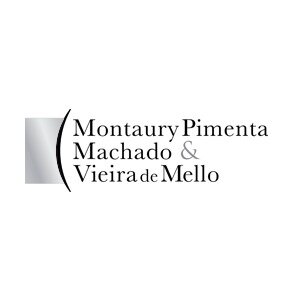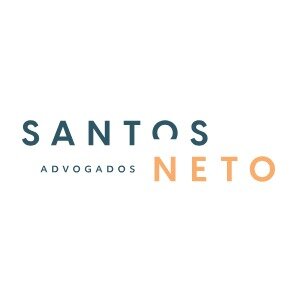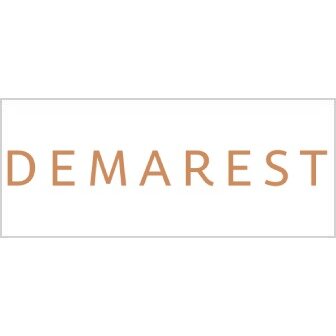Best Art & Cultural Property Law Lawyers in São Paulo
Share your needs with us, get contacted by law firms.
Free. Takes 2 min.
List of the best lawyers in São Paulo, Brazil
About Art & Cultural Property Law in São Paulo, Brazil
Art & Cultural Property Law in São Paulo is a specialized field that addresses the protection, preservation, and regulation of cultural heritage and artworks. This legal area encompasses a wide range of topics including the provenance of art pieces, cultural heritage preservation, intellectual property rights, and international art trade regulations. In São Paulo, a vibrant cultural hub, these laws ensure the safeguarding of artistic creations and historically significant artifacts while fostering a conducive environment for cultural expression and commerce.
Why You May Need a Lawyer
Legal assistance in Art & Cultural Property Law may be necessary in various situations, including:
- Provenance and Authenticity Disputes: Ensuring the legitimacy of art pieces or heritage items.
- Intellectual Property Issues: Protecting the rights of artists and creators concerning the reproduction and distribution of their works.
- Import/Export Regulations: Navigating the complex laws related to the international movement of cultural property.
- Restoration and Preservation: Ensuring that restoration efforts comply with legal standards and do not compromise historical integrity.
- Documentation and Licensing: Assistance with the necessary paperwork for museum exhibitions, sales, or acquisitions.
Local Laws Overview
In São Paulo, key aspects of Art & Cultural Property Law include:
- Cultural Heritage Protection: Laws set strict criteria to protect sites and objects of archaeological, historical, or artistic value.
- Intellectual Property Laws: These laws cover copyright, trademarks, and the protection of artistic innovations.
- Regulations on Antiques and Cultural Goods: Every transaction involving these items must comply with specific national and international guidelines to prevent illegal trade.
- Museum and Exhibition Regulations: Control measures for public exhibitions to safeguard cultural property are enforced to maintain ethical display and conservation standards.
Frequently Asked Questions
What is cultural property law?
Cultural property law pertains to the legal framework that governs the ownership, use, preservation, and transfer of art and cultural items of historical or artistic significance.
How do I verify the provenance of an artwork?
Verifying the provenance involves checking documentation and records showing the history and ownership of an artwork, often with the assistance of experts and legal professionals.
What steps should I take to protect my intellectual property as an artist?
Register your work with the appropriate intellectual property office, consider legal protection and usage policies, and consult a lawyer to understand your rights and options.
Are there specific import/export regulations for art in São Paulo?
Yes, specific norms regulate the import and export of cultural goods to prevent illicit trafficking, protect cultural heritage, and ensure provenance authenticity. Compliance with both national and international regulations is necessary.
Can cultural property be subject to restoration without legal permission?
No, any restoration of cultural property must adhere to legal standards to maintain its historical and cultural integrity and usually requires authorization from relevant authorities.
How are disputes about art authenticity resolved?
Disputes may be resolved through negotiation, arbitration, or litigation, often involving expert testimonies, provenance research, and legal counsel.
Is it legal to sell replicas of cultural artifacts?
Selling replicas is generally legal if they are clearly identified as such and do not infringe on intellectual property rights. However, it is advisable to check specific regulations regarding disclosure and sales.
What is the role of a lawyer in museum acquisitions?
A lawyer ensures that acquisitions comply with legal standards, facilitates the clear transfer of title, and addresses any potential provenance issues or repatriation claims.
Who regulates art auctions in São Paulo?
Art auctions are regulated by specialized legal entities and government bodies ensuring transparency, compliance with cultural property laws, and protection of buyers and sellers.
Are there tax implications related to art and cultural property transactions?
Yes, art transactions can have various tax implications, such as sales tax, estate tax, and income tax. Consulting a legal expert is advised to understand the financial liabilities involved.
Additional Resources
Consider reaching out to the following resources for more information or assistance:
- Ministry of Culture (MinC): For cultural heritage laws and policies.
- Brazilian Institute of Museums (IBRAM): Offers guidelines for museum management and heritage conservation.
- National Institute of Historic and Artistic Heritage (IPHAN): Regulates preservation and protection measures for cultural heritage.
- Brazilian Association of Intellectual Property (ABPI): Provides resources on protecting intellectual property rights.
Next Steps
If you need legal assistance in Art & Cultural Property Law in São Paulo, consider the following steps:
- Consult a Specialist Lawyer: Seek lawyers specializing in cultural property and art law who understand both local and international frameworks.
- Gather Documentation: Collect all relevant documents related to your query, be it for provenance, sale, acquisition, or dispute resolution.
- Reach Out to Professional Associations: Engage with professional bodies for referrals and additional advice.
- Consider Mediation or Arbitration: Explore alternative dispute resolution methods as a cost-effective way of settling legal issues.
Lawzana helps you find the best lawyers and law firms in São Paulo through a curated and pre-screened list of qualified legal professionals. Our platform offers rankings and detailed profiles of attorneys and law firms, allowing you to compare based on practice areas, including Art & Cultural Property Law, experience, and client feedback.
Each profile includes a description of the firm's areas of practice, client reviews, team members and partners, year of establishment, spoken languages, office locations, contact information, social media presence, and any published articles or resources. Most firms on our platform speak English and are experienced in both local and international legal matters.
Get a quote from top-rated law firms in São Paulo, Brazil — quickly, securely, and without unnecessary hassle.
Disclaimer:
The information provided on this page is for general informational purposes only and does not constitute legal advice. While we strive to ensure the accuracy and relevance of the content, legal information may change over time, and interpretations of the law can vary. You should always consult with a qualified legal professional for advice specific to your situation.
We disclaim all liability for actions taken or not taken based on the content of this page. If you believe any information is incorrect or outdated, please contact us, and we will review and update it where appropriate.













